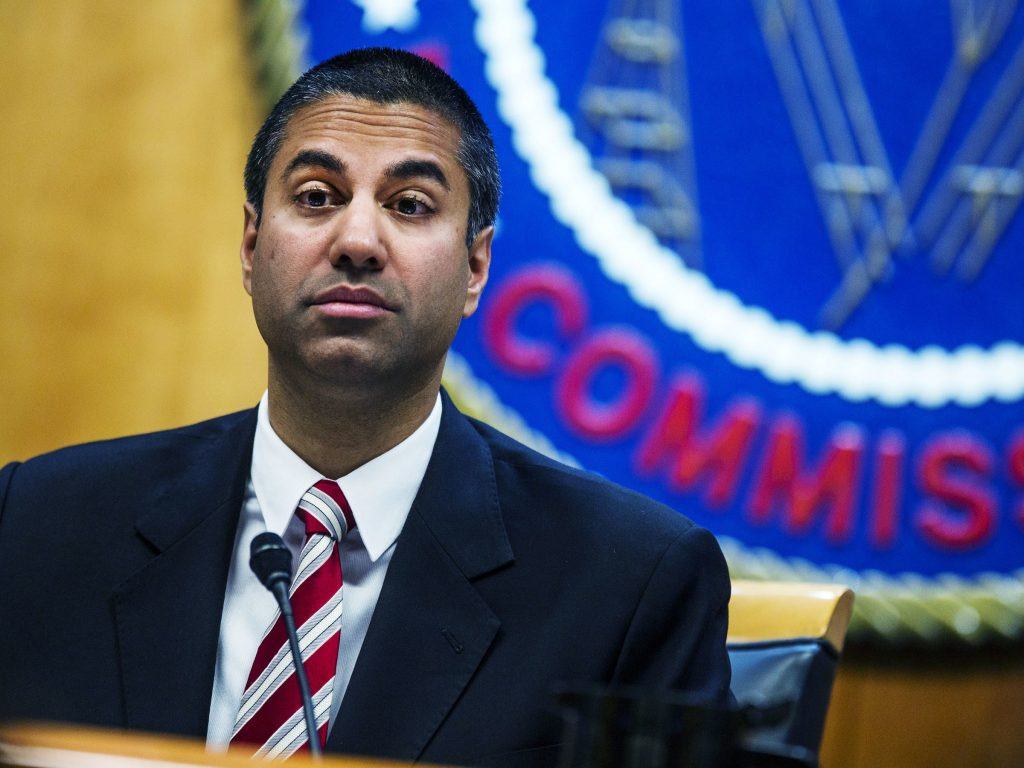FCC Plan to Repeal Net Neutrality Poses Threat to Online Gambling Industry
Posted on: November 22, 2017, 04:00h.
Last updated on: November 22, 2017, 03:14h.
The Federal Communications Commission released a plan on Tuesday that would roll back net neutrality, a move that will be welcomed by some telecom giants and internet service providers (ISPs), but which could cause serious problems for the online gambling community.

The current net neutrality rules, which were put into place by the Obama administration, prohibit ISPs from giving priority to some websites or activities over others, or from blocking access to specific sites due to their content or source. Essentially, the rules dictate that the internet be treated as a public utility, with all the corresponding consumer protections.
But current FCC chairman Ajit Pai plans on rolling back these rules as part of his deregulation agenda. It is widely expected that his plan will be approved during a Dec. 14 meeting of the commission, where Pai and the two other Republicans on the FCC will presumably vote in favor of the proposal, with the two Democrats on the commission opposing the move.
Pai defended his proposal, saying that deregulation would be beneficial for the economy.
“What we wanted to do is return to the free market consensus that started in the Clinton administration and that served the internet economy in America very well for many years,” he told Fox & Friends.
Fierce Opposition
But opponents, including public interest groups and many large internet firms including Google, Amazon, and Facebook, say that rolling back net neutrality regulations is a dangerous move that would allow telecom companies to dictate what content their customers are allowed to see.
“We are disappointed that the proposal announced today by the FCC fails to maintain the strong net neutrality protections that will ensure the internet remains open for everyone,” said Facebook Vice President Erin Egan in a statement. “We will work with all stakeholders committed to this principle.”
One of the key concerns of opponents is that the telecom companies could decide who gets to enjoy preferential treatment, putting firms who could afford it in an internet “fast lane” while other sites struggle to provide quality services to their customers if their bandwidth is throttled.
Gaming Concerns
A reversal of net neutrality could have serious implications for online gambling. Telecoms such as AT&T and Verizon could deprioritize traffic to casinos, sportsbooks, and poker rooms, for example, where slower service would be frustrating to gamblers, particularly when it comes to live betting.
Even worse, these firms could potentially decide to block access to these sites altogether, with no recourse to players. More realistically, though, they could charge gaming companies hefty fees to deliver the type of service current customers have grown to expect.
These concerns are not purely theoretical. In 2007, Comcast deliberately slowed the upload and download speeds of peer-to-peer file sharing sites, saying they used too much bandwidth.
In 2014, Netflix started paying both Comcast and Verizon to improve their network performance after the online streaming company and its customers saw a substantial decline in connection speeds as the ISPs allowed Netflix’s traffic to bottleneck at what are known as “peering ports.”
No comments yet